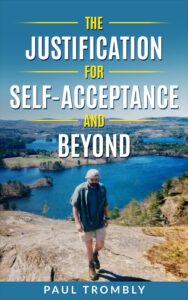In an age of unprecedented access to information, one might expect truth to reign supreme. However, a curious phenomenon persists: many people actively choose to believe comforting falsehoods over well-established facts. This tendency, which some have dubbed a “self-justification pandemic,” has far-reaching implications for personal growth, social cohesion, and even public health. In this article, we’ll explore the psychology behind this behavior and discuss strategies for fostering a healthier relationship with truth.

The Allure of Self-Justification
Self-justification is the act of rationalizing one’s beliefs, actions, or decisions, often in the face of contradictory evidence. This cognitive process serves several psychological functions:
- Preserving self-esteem
- Reducing cognitive dissonance
- Maintaining a sense of control
- Protecting existing worldviews
While these functions can provide short-term emotional comfort, they often come at the cost of personal growth and societal progress.
The Role of Cognitive Biases
Several cognitive biases contribute to the self-justification pandemic:
- Confirmation bias: Seeking out information that supports existing beliefs while ignoring contradictory evidence
- Anchoring bias: Relying too heavily on initial information when making decisions
- Backfire effect: Strengthening one’s beliefs when presented with contradictory evidence
- Dunning-Kruger effect: Overestimating one’s own knowledge or competence in a given area
Understanding these biases is crucial for developing strategies to combat self-justification.
The Influence of Social Media and Echo Chambers
Social media platforms and personalized content algorithms have exacerbated the self-justification pandemic by:
- Creating echo chambers that reinforce existing beliefs
- Facilitating the rapid spread of misinformation
- Providing a platform for unchecked “expert” opinions
- Encouraging tribal thinking and us-vs-them mentalities
These factors make it easier than ever for individuals to surround themselves with information that confirms their preexisting beliefs, regardless of factual accuracy.

The Cost of Self-Justification
While self-justification may provide temporary comfort, it carries significant long-term costs:
- Impaired decision-making
- Stunted personal growth
- Increased social division
- Resistance to necessary change
- Potential harm to public health and safety
In extreme cases, self-justification can lead to the rejection of scientific consensus on critical issues.
Strategies for Combating Self-Justification
Overcoming the tendency towards self-justification requires conscious effort and practice. Here are some strategies to cultivate a healthier relationship with truth:
- Develop metacognitive awareness: Regularly reflect on your thought processes and decision-making.
- Seek diverse perspectives: Actively expose yourself to viewpoints that challenge your beliefs.
- Practice intellectual humility: Acknowledge the limitations of your knowledge and be open to learning.
- Engage in civil discourse: Discuss controversial topics with respect and a genuine desire to understand others.
- Improve media literacy: Learn to critically evaluate sources of information and identify potential biases.
- Embrace discomfort: Recognize that growth often requires challenging your existing beliefs.
- Use the “steel man” technique: When encountering opposing views, try to articulate them in their strongest form before critiquing them.
- Cultivate curiosity: Approach new information with genuine interest rather than defensiveness.
The Role of Education and Critical Thinking
Fostering critical thinking skills is essential for combating the self-justification pandemic. Educational institutions and public awareness campaigns can play a crucial role by:
- Teaching formal logic and argumentation
- Emphasizing the scientific method and empirical evidence
- Promoting media literacy and fact-checking skills
- Encouraging interdisciplinary thinking
- Fostering a culture of intellectual curiosity and open-mindedness
By equipping individuals with these tools, we can create a society more resilient to misinformation and self-justification.
The Importance of Emotional Intelligence
Addressing self-justification isn’t just about logic and critical thinking; it also requires emotional intelligence. Developing skills such as self-awareness, empathy, and emotional regulation can help individuals:
- Recognize when emotions are influencing their judgment
- Manage the discomfort of challenging long-held beliefs
- Navigate difficult conversations about sensitive topics
- Build bridges across ideological divides
Conclusion
The self-justification pandemic presents a significant challenge to personal growth, social cohesion, and collective progress. By understanding the psychological factors that drive this phenomenon and implementing strategies to combat it, we can foster a healthier relationship with truth. This journey requires ongoing effort, both individually and collectively, but the rewards – improved decision-making, stronger communities, and a more informed society – are well worth the investment.
Remember, the path to truth often involves discomfort and uncertainty. Embracing this reality, rather than seeking comfort in self-justification, is key to personal and societal growth. As we navigate an increasingly complex world, let’s strive to be curious, open-minded, and willing to change our views in light of new evidence. Only then can we hope to address the challenges that face us and create a better future for all.
Hey there! We hope you love our fitness programs and the products we recommend. Just so you know, Symku Blog is reader-supported. When you buy through links on our site, we may earn an affiliate commission at no extra cost to you. It helps us keep the lights on. Thanks.
Disclaimer: The information provided in this discussion is for general informational and educational purposes only. It is not intended as medical or professional advice. Only a qualified health professional can determine what practices are suitable for your individual needs and abilities.

